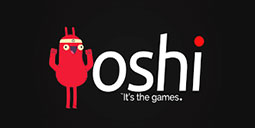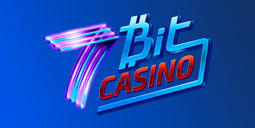“That’s only going to continue to ramp up every cycle.”
“To meit kind of feels like the beginning of ethereum.”
“You must be a politician and a customer care person and a technologist to be able to pull it off.”
Trust me
Andrew Paulicek, creator of Happy Tezos, is not the only one excited about the upcoming landmark in the life span of Tezos, a blockchain system that started three weeks ago after a series of lengthy, debilitating delays.
When that happens, the Tezos Foundation, the thing that conducted Tezos’ first coin supplying (ICO) last year and started the system at the end of June, will provide up only control of the Tezos blockchain. With this shift, both the initial creation of Tezos startups and its own token holders may have roles to perform in the community.
Contrary to EOS, however, validators aren’t chosen through elections.
Regular users who lack the money can delegate tokens to professional services to do it to them, nonetheless. That way, users get subsidies in the community, without the fees billed by bakers.
Every three days or so — that the specific periods vary — Tezos enters a new”cycle.” At some point this weekend, likely Saturday, it is going to cross the threshold to the cycle (sometimes referred to as cycle , as techies count from zero).
Especially since holders may move their assigned tokens at any time — there isn’t any minimum period for which they have to be staked — there would seem to be little danger in delegating tez and bringing in what numbers to interest from the block subsidies.
“I feel this is a whole new level of geekiness.”
Since launch, every one of Tezos’ eight”bakers” — validators who serve a similar role to miners in different blockchains — has been commanded by the foundation, as this picture (courtesy Tzscan) shows.
Some of these expert delegates (Happy Tezos is only one, even though it will not be engaging in the very first cycle of baking) will be making their debut within the next cycle, though foundation nodes will continue to bake the vast majority of cubes for at least a few weeks. As shown by a spreadsheet shared using CoinDesk by one of these independent delegation solutions, the foundation will find around 80 percent of cubes, but that proportion will fall off rapidly as more bakers emerge online.
The bake-off
That Answer Can You Change
“We’re thrilled to see that the level of involvement in baking,” a Tezos Foundation spokesperson advised CoinDesk, adding:”over 96% of those tokens triggered are taking part in baking or delegation.”
Photo by Marc Hochstein
The excitement is real at the delegation services CoinDesk talked to — in part, no doubt, since they will soon be bringing in fees out of baking.
In fairness, there is not much else related to tez from the lack of decentralized software on the platform.
It would seem that the token holders share the delegation services’ enthusiasm.
But”as much as trapping all this technical information and making it readable,” he further added, that’s going to be a job for the community within the next calendar year. It will not be simple, ” he concluded:
To put it differently, clients will need to trust that the delegation services they sign up for will cover them what they’re owed, rather than charge higher fees than promoted. Compared to bitcoin mining, Lamis said, as a Tezos baker:His co-founder, Josh Brown, said,”We’re going to be watching as soon as the ball falls .”
With the start of the next cycle, the opportunity to”bake” will start up to the broader community, also Tezos will begin to presume something nearer to the final, decentralized form its own creators envisioned.
Then again, tez holders must select their delegation services sensibly. Every service CoinDesk talked to, as well as that the Tezos Foundation, said the same thing: that the relationship between token-holder and baker is not regulated by smart contracts, but instead is”off-chain” — at least for the time being.
As this market will get underway, one of the biggest challenges will be transparency and accessibility to advice. Lamis said that he depended on”tribal wisdom” gleaned from forums and conversations with Tezos programmers.
Much like EOS, the Tezos system reaches consensus about the state of the blockchain utilizing assigned proof-of-stake, rather than the proof-of-work system recognizable to bitcoin along with ethereum. Instead of crunching through hashes to discover a new block of trades, as in mining, then the process is a type of randomized voting system known as , in Tezos’ bread-themed jargon, baking.
The chief in blockchain news, CoinDesk is a press outlet that strives for the highest journalistic standards and abides by a strict set of qualitative policies. CoinDesk is an independent operating subsidiary of Digital Currency Group, which invests in cryptocurrencies along with blockchain startups.
“A very small percentage of the General community-run bakeries and tokens are actually going to become baking tomorrow” Jonas Lamis, company lead at the delegation service Tezos Community, informed CoinDesk, adding:
Who's In Control of Tezos? That Answer Is About to Change - April 2024
EXPERTLY REVIEWED
MOBILE FRIENDLY
FAST PAYOUTS
- CasinoRatingBonusVisit Casino
Get your 100% Match Bonus up to $1000!
200% match bonus up to 2000
Up to 5 BTC
100% match bonus + 180 free spins
Get up to 1 BTC on First Deposit!
Welcome bonus up to 1.5BTC + 250 free spins
Get your 5 BTC Welcome Bonus
Top Rated
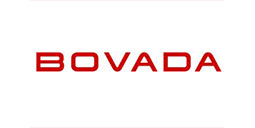


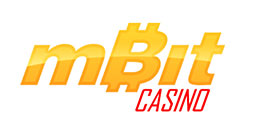
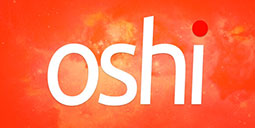
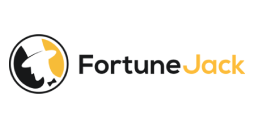
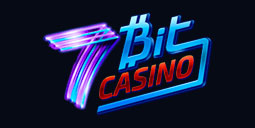
Search
Casino List
- Bovada Casino
- 7bit Casino
- Bitstarz Casino
- Sun Palace Casino
- Ignition Casino
- Tangiers Casino
- Nitrogen Sports Casino
- Casumo Casino
- Fortunejack Casino
- Mars Casino
- Mbit Casino
- Cafe Casino
- Drake Casino
- Grand Fortune Casino
- CryptoReels Casino
- Wild Casino
- Betchain Casino
- Oshi Casino
- Bitcoin Penguin Casino
- Joe Fortune Casino
- Vegas Casino.io




